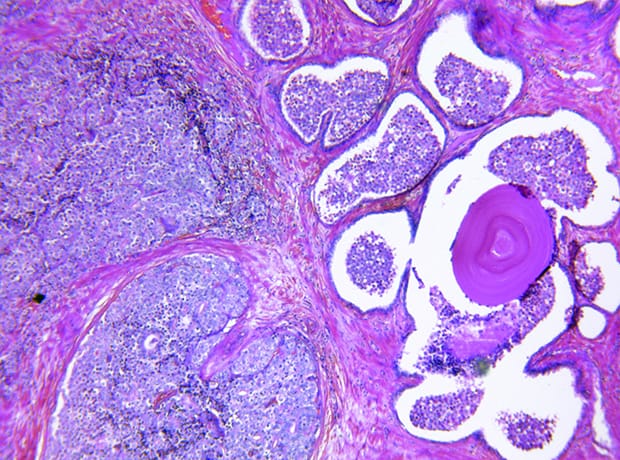The most commonly diagnosed cancer in men in the UK causes more than 12,000 deaths a year
Research led by researchers from the Institute of Cancer Research (ICR) and the Royal Marden NHS Foundation Trust has revealed a new tool that can predict prostate cancer recurrence more than 10 years in the future.
Published in Nature CancerThe research was funded by Cancer Research UK, the Medical Research Council and the Wellcome Trust.
Prostate cancer is the most commonly diagnosed cancer in men in the UK, with around one in eight men diagnosed in their lifetime and more than 12,000 men dying from it each year.
The researchers used machine learning to analyze 1,923 samples from 250 participants in an intensity-modulated radiation therapy (IMRT) clinical trial, and 642 samples from 114 participants in a radiotherapy trial at the Royal Marsden Hospital, to assess the genetic differences between cells within individual tumours, providing integrated information on cells’ genomes and morphology, and patient outcomes over more than a decade.
The study found that genetic differences and morphological diversity measured by artificial intelligence indicate the ability of tumors to evolve to adapt and survive disease.
Measuring this diversity using intratumour heterogeneity, looking at the degree of difference between cells in different regions of the tumour, the team found that this ‘evolvability’ was a strong predictor of recurrence, and by combining the two measures, they identified a subgroup of patients who experienced a recurrence of their disease in 50% less time than other patients.
Additionally, the researchers identified a correlation between the loss of certain chromosomes and a reduction in immune cells within tumors, which may influence response to certain treatments.
Professor David Deannaly, Emeritus Professor at the ICR, commented: “We believe our findings may make it possible to identify patients with high-risk localised cancer who are more likely to benefit from early treatment with life-extending drugs.”
The researchers intend to test this evolutionary measure of recurrence risk in a larger population with a wider range of disease characteristics.




